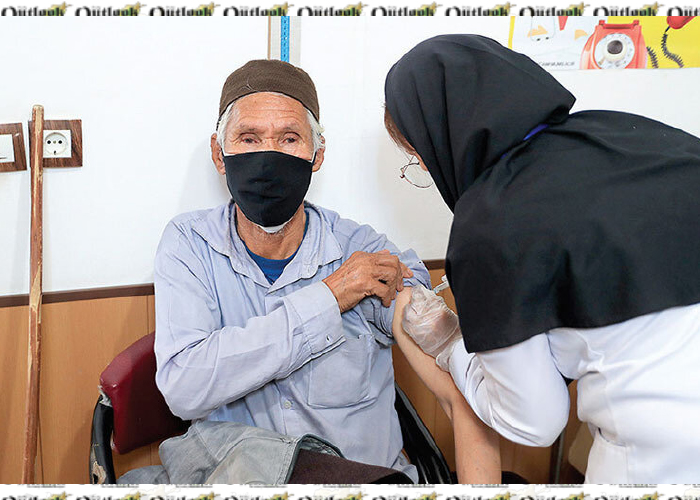TEHRAN – Iran has generously considered refugees over the age of 75 for vaccination against coronavirus, said Indrika Ratwatte, Director of the Regional Bureau for Asia and the Pacific at the United Nations High Commissioner for Refugees (UNHCR), appreciating Iran for over four decades of hosting refugees.
Iran cooperates with the United Nations on hosting refugees, and the main focus of the UNHCR is to help the country to find a solution for the foreign nationals, Ratwatte stated.
Pointing out that over the last 20 years, a large number of foreign nationals have returned to their homeland voluntarily, he said that however, in recent years, there has been a significant decline in the voluntary return of citizens to their country, and despite efforts in Afghanistan to restore stability to security.
Our focus is on supporting the services provided to Afghan refugees, especially in the field of health in Iran, he further highlighted, IRNA reported on Monday.
He expressed appreciation for generously vaccinating the foreign national aging 75 or above, adding, the UNHCR has also supported Iran's activities, especially in the field of personal protective equipment and disinfectants, and is working closely with the Ministry of Health.
Mehdi Mahmoudi, director-general of citizens and immigrants of the Ministry of Interior said that during these 40 years, Iran has done good work in various fields of education, employment, vocational training, health, and emergencies for refugees with the cooperation of international organizations.
And after 40 years of hosting, we hope to see the dignified return of Afghans and other nationals to their homelands, he said, calling on the countries such as Afghanistan, Pakistan, and Iraq, to provide the right conditions for their people to return back.
The population of Afghan immigrants residing in Iran is about two to three million, some of whom sometimes have problems with identity cards or do not have identification codes, he said.
Some 120,000 refugees residing in Iran are now covered by health insurance, Mahmoudi noted.
So far, no vaccine has not been imported by the United Nations to Iran for refugees, but they have announced their readiness to import 6 million doses through the first phase, he added.
On May 9, the Iranian Red Crescent Society (IRCS) asked the International Committee of the Red Cross (ICRC) to provide 2 million doses of coronavirus vaccine to be used for Afghan refugees.
Living conditions of foreign nationals in Iran
At the end of 2018, Iran hosted close to one million refugees, making it the sixth-largest refugee host country in the world. The country was also the eighth largest refugee-hosting country in the world in 2019, hosting 951,142 Afghan refugees and 28,268 Iraqi refugees, according to the UNHCR.
One of the largest and most protracted urban refugee populations in the world is living in Iran; about 97 percent of refugees live in urban and semi-urban areas, while three percent are residing in 20 refugee resorts run by the UNHCR's main government counterpart.
In light of the COVID-19 pandemic, undocumented Afghans have access to free primary health services and similarly free COVID-19 related testing, treatment, and hospitalization, just like nationals.
Despite the challenges, Iran has continued to generously give refugees access to education and health services. Iran is one of the handfuls of countries in the world that offer refugees the option to enroll in national health insurance for essential secondary and tertiary public health services in the same way as Iranian nationals.
The national insurance scheme allows for free COVID-19 treatment and hospitalization. It also subsidizes the cost of surgeries, dialysis, radiology, laboratory tests, outpatient care, and more. (Tehran Times)
Home » Afghanistan » UN Appreciates Iran for Vaccinating Foreign Nationals
UN Appreciates Iran for Vaccinating Foreign Nationals

